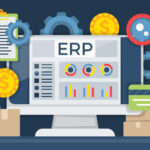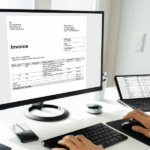As Malaysia transitions towards a digital taxation system, e-invoicing has emerged as a cornerstone of this initiative. Spearheaded by the Inland Revenue Board of Malaysia (IRBM), this move aims to streamline tax processes, ensuring transparency and efficiency for businesses and the government alike. While most entities are required to adopt e-invoicing, exemptions exist to address unique circumstances, ensuring a balanced implementation.
This blog provides an in-depth exploration of e-invoice exemptions in Malaysia, focusing on who is exempt, why these exemptions exist, and their implications. It also delves into the broader context of e-invoicing adoption and its impact on businesses and governance.
Entities Required to Issue e-Invoices in Malaysia
Before discussing exemptions, it’s essential to identify the entities mandated to implement e-invoicing. Compliance ensures a structured approach, reducing errors and facilitating efficient tax management. Understanding these requirements helps businesses align with IRBM’s digitalization goals.
Applicable Entities
E-invoicing applies to a wide range of taxpayers engaged in commercial activities, including:
- Companies: Corporations operating across various sectors in Malaysia.
- Associations: Organizations formed by groups of individuals for specific purposes, such as trade associations.
- Bodies of Persons: Non-corporate entities conducting business activities.
- Partnerships: Joint ventures or partnerships registered under Malaysian law.
- Sole Proprietors: Individuals operating businesses on their own.
These entities are required to generate e-invoices for their taxable activities to ensure compliance with Malaysia’s taxation framework.
Transaction Types
Suppliers are obligated to issue e-invoices for the following types of transactions:
- B2B (Business-to-Business) Transactions: Covers transactions between registered businesses, ensuring transparent tax management across commercial entities.
- B2G (Business-to-Government) Transactions: Applies to transactions involving government bodies, aligning with public sector digitization efforts.
- B2C (Business-to-Consumer) Transactions: Mandated upon customer request to ensure consumer-facing transparency.
- Other Taxable Documents: Includes the issuance of debit notes, credit notes, and refund vouchers, ensuring comprehensive coverage of transactional records.
If a supplier is a foreign entity or falls outside Malaysia’s e-invoicing scope, the responsibility shifts to the buyer, who must self-generate the e-invoice. This ensures the continuity of compliance irrespective of the supplier’s jurisdiction.
Implementation Timeline
The transition to e-invoicing will occur in phases, ensuring businesses of varying scales have adequate preparation time:
- Large Enterprises: Organizations with an annual turnover exceeding RM 100 million are required to comply by August 1, 2024.
- Small and Medium Enterprises (SMEs): Entities below the turnover threshold must implement e-invoicing processes starting January 1, 2025.
This phased approach minimizes disruption, allowing businesses to align their systems with IRBM requirements effectively.
Who Is Exempt from e-Invoicing in Malaysia?
The IRBM’s guidelines detail specific exemptions to accommodate unique positions or challenges. These exemptions cover both entities and certain types of income, ensuring a balanced and inclusive approach to implementation.
Exempt Entities
The following entities are exempt from issuing e-invoices:
- Ruler and Ruling Chiefs: Defined under Section 76 of the Income Tax Act 1967, this includes state rulers and ruling chiefs who hold constitutional positions.
- Former Rulers and Their Consorts: Excludes former Governors or Yang di-Pertua Negara of a State.
- Consorts of Rulers: Includes individuals holding titles such as Raja Perempuan, Sultanah, and Tengku Ampuan.
- Government Bodies: This includes federal and state governments, statutory authorities, and local authorities.
- Government-Linked Facilities: Hospitals, clinics, multipurpose halls, and similar facilities operated by these authorities are exempt.
- Diplomatic Missions: Includes consular offices, diplomatic officers, consular officers, and employees governed by international agreements.
Exempt Income Categories
Certain types of income are also exempt from e-invoicing requirements. These include:
- Employment Income: Wages, salaries, and allowances paid to employees.
- Alimony: Payments made for spousal support.
- Pensions: Retirement income exempt under specific regulations.
- Dividend Distributions: Subject to exemptions under certain circumstances.
- Scholarships: Grants and financial aid for education.
- Zakat Contributions: Payments made for religious obligations.
These exemptions ensure that entities and income types not directly related to commercial taxation remain unaffected by e-invoicing requirements.
Why Do Exemptions Exist?
E-invoicing exemptions are not arbitrary; they serve specific purposes tied to legal, administrative, and operational considerations. These reasons ensure the smooth adoption of e-invoicing without unnecessary complications.
Key Reasons for Exemptions
- Sovereign Status Entities such as rulers and ruling chiefs operate under distinct legal frameworks, necessitating exemption from commercial e-invoicing. Their unique position under Malaysian law underscores the need for this provision.
- Government Financial Practices Government bodies and statutory authorities follow their own accounting and regulatory practices, which differ from commercial entities. These entities often manage finances under predefined frameworks that prioritize public accountability over commercial tax practices.
- International Protocols Consular offices and personnel are governed by international agreements, such as the Vienna Convention on Diplomatic Relations. These agreements dictate financial processes that exempt such entities from adhering to local e-invoicing requirements.
- Operational Streamlining Exemptions help streamline the implementation process by focusing resources on entities most relevant to e-invoicing. This targeted approach reduces administrative complexity and enables smoother system integration.
- Avoidance of Redundancy Certain incomes, such as employment income or pensions, are already documented through other regulatory mechanisms like payroll systems or retirement fund contributions. Applying e-invoicing to these categories would result in redundancy and inefficiencies.
Impact of e-Invoice Exemptions
While exemptions simplify compliance for specific entities, they also introduce certain complexities in the broader e-invoicing ecosystem. Below are the key impacts:
Positive Impacts
- Reduced Administrative Burden Exempt entities save time and resources by avoiding the need to generate and manage e-invoices.
- Efficient Resource Allocation Authorities can focus enforcement efforts on commercial entities, ensuring better compliance.
- Cost Savings Exempt entities benefit from reduced implementation and operational costs.
Negative Impacts
- Challenges in Uniform Enforcement Exemptions make it harder to standardize e-invoicing across all entities.
- Inconsistent Documentation Exemptions create gaps in documentation, affecting data uniformity for SST returns.
- Increased Complexity Authorities need to manage dual systems for exempt and non-exempt entities, complicating oversight.
How Advintek Simplifies Compliance
Navigating e-invoicing exemptions and requirements can be complex. At Advintek, we specialize in providing tailored solutions that help businesses in Malaysia adapt seamlessly to the e-invoicing framework. Our ISO27001 certification and status as a Peppol Certified Access Point Provider ensure the highest standards of security and compliance.
Why Choose Advintek?
- Comprehensive e-Invoicing Solutions From generation to tracking, our platform simplifies the entire invoicing process.
- Customizable Features Our solutions are designed to adapt to the unique needs of your business, ensuring compliance without disrupting operations.
- Expert Support With our in-depth knowledge of Malaysia’s taxation landscape, we provide guidance every step of the way.
Conclusion
Malaysia’s journey towards a digital taxation ecosystem is a transformative step forward. While e-invoicing exemptions provide necessary flexibility, they also underscore the importance of having robust systems in place to manage compliance effectively.
Advintek stands at the forefront of this transition, offering cutting-edge solutions to help businesses navigate the complexities of e-invoicing. Our expertise, coupled with our commitment to excellence, makes us the ideal partner for your digital transformation.
Start your e-invoicing journey with confidence. Visit Advintek to learn more.









